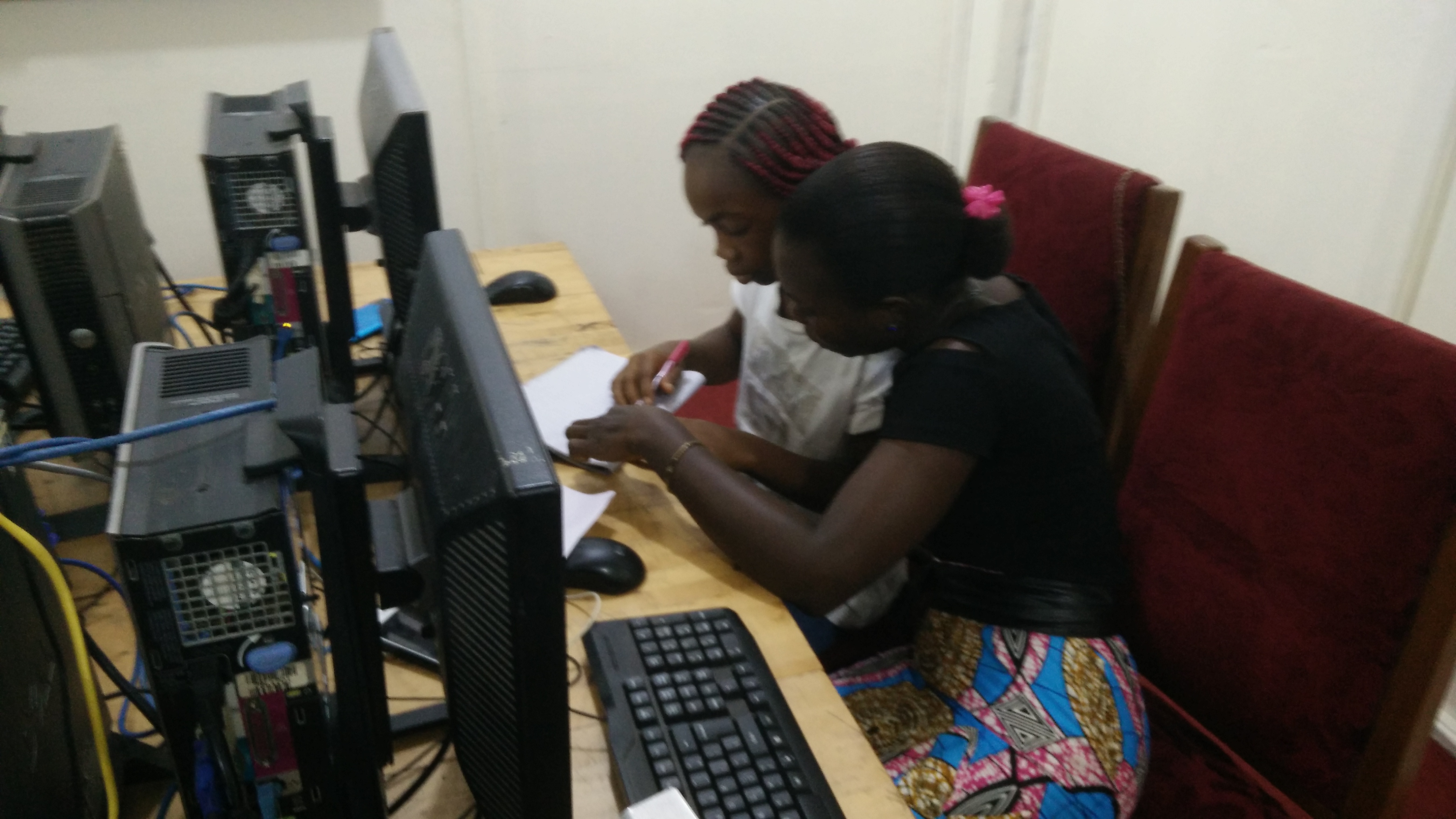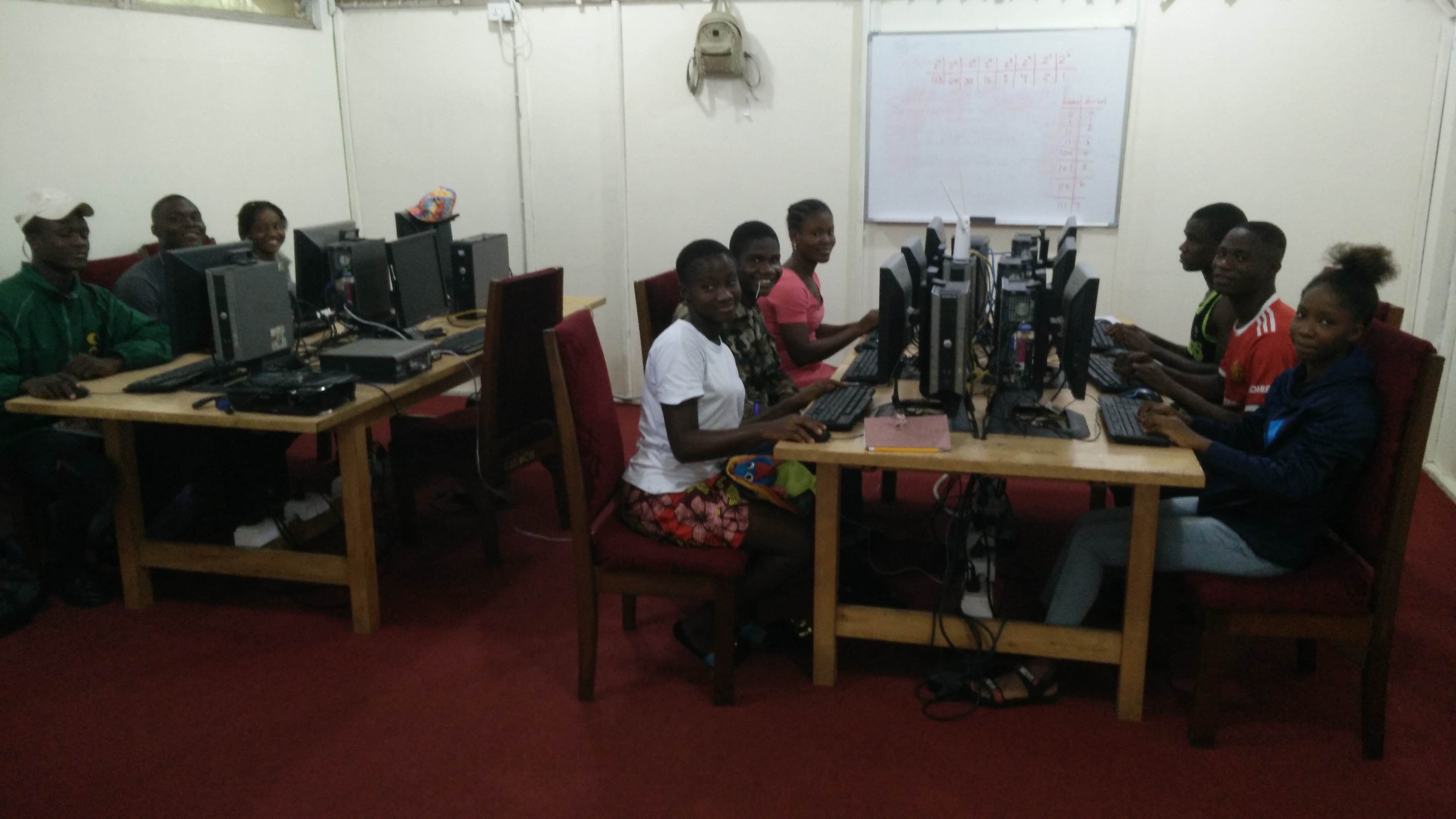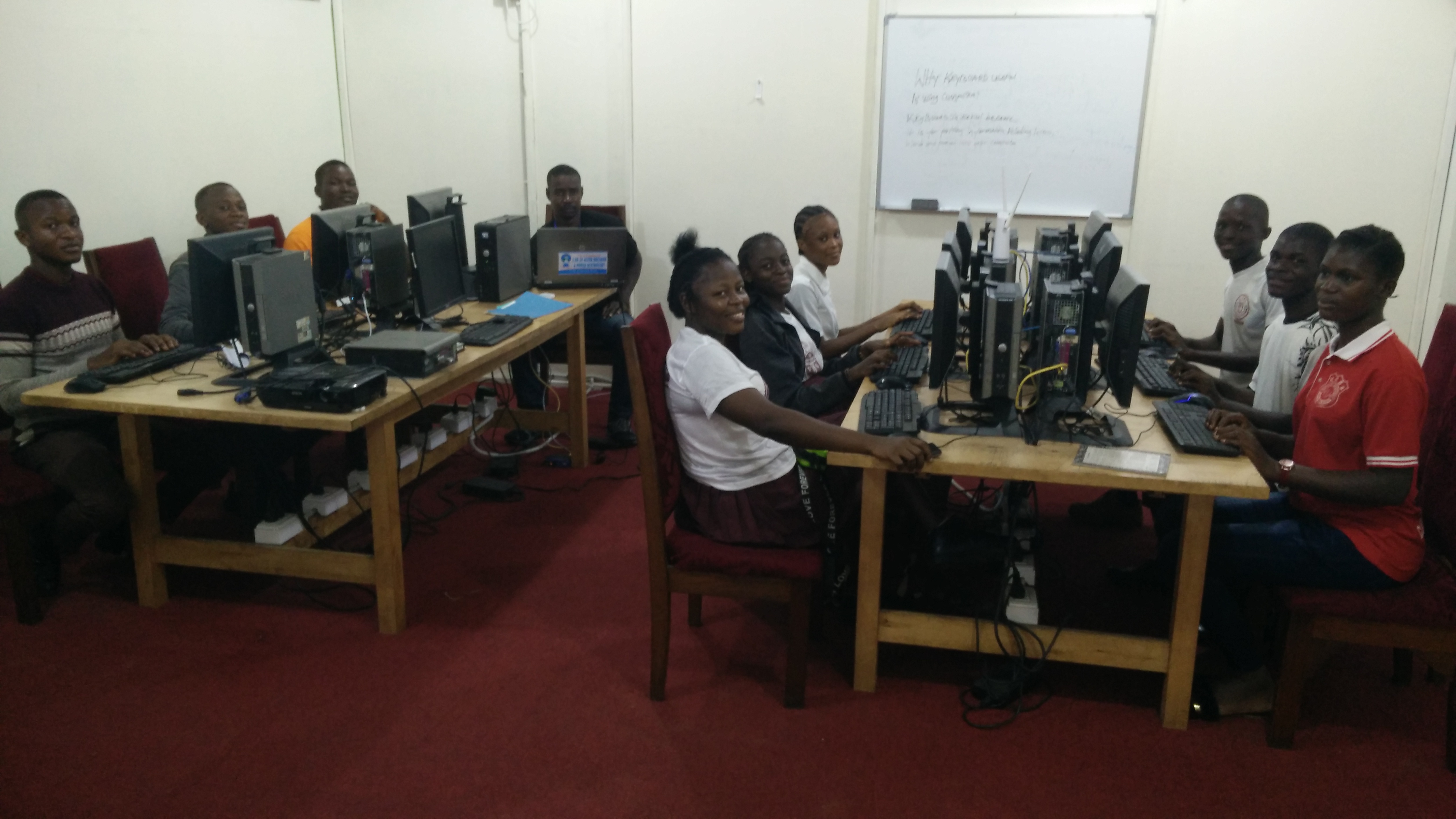From Keyboarding to Computer Science
Looking at both the progress made over the first half of my stay here, and the prospects for where we can go during the second half, to say that I am pleased would be an understatement.
While presenting an algorithm for converting from decimal to binary number representation to my PM class this past week, I wrote the mod operator and on the board and said "you probably have never seen this operator before". Several students responded almost in unison, "it is the remainder when you do division". Thomas then asked, almost indignantly, "why did you think we had never seen it before?" When I replied, "because my students back home wouldn't have, but it seems your math curriculum here is better than ours", more than a few proud smiles appeared around the room. And indeed I have found my students here, despite most of them never having used a desktop computer before, are better prepared for computational thinking than many of my students back home.

Freena and Comfort working on an algorithm
In the lead up to my coming here this Summer, I had asked the Superintendent to teach a class of around 25 "gifted and talented" students. I picked the number 25 because I figured that was how many computers we would have, and I specifically requested a "gifted and talented" program, as we would call it in Arlington Public Schools, because given the tremendous material challenges I knew we would face, which have have more than confirmed and which I have documented in previous blog posts, I felt that training a group of student academic leaders would give us the best chance of making a lasting impact on the fledgling ICT program within MCSS.
Well, at the midpoint of my stay here, I can happily say that I got everything I asked for, and then some. I came with flexible goals and a desire to be guided by design justice principles. These principles have served the project well, as we have adapted to circumstances and adopted new goals as our process together unfolds.
Progress at the Program Midpoint
Instead of 25 students on 25 laptop computers, we have four two hour sessions per day of 9 students on 9 desktop computers. The sessions meet from 8 to 10 am (AM Class), 10 am to 12 noon (10th Grade Class), 12 noon to 2 pm (Midday Class), and 3:30 to 5:50 pm (PM Class).
The 10th grade group was only added this past week. I was concerned that since all of the students in the AM and Midday classes are graduating seniors, our ability to have a lasting impact on the MCSS ICT program would be lost, since these students will not be returning to MCSS.

Rising 10th Grade Class: Laye, Standy, Bendu, Maryaan, Sando, Victoria, Philomena, Prince, and Junior
The rising 10th graders will be entering their first year of high school next year (MCSS high schools run from 10th to 12th grade). This group all just finished their last year at Mary N. Brownell Junior High School, and the class was organized by student president Bendu Gbahn, who came to me expressing interest in the class at the end of week 3, and then recruited the rest of the class from among her classmates when I told her I would open up a new section if she could fill the seats. They are three weeks behind the other classes, so they spent their first week learning to type.
From Keyboarding to Computer Science
The PM class has made the most progress of all. All but one of them are rising 12th graders who are still attending classes during the day, so they are volunteering to show up at 3:30 pm after a full day of regular school. That kind of motivation is an almost sure recipe for success, and indeed, they have been very successful.

PM Class: Abednego, Thomas, Daniel, Yawa, Shallon, Taddymar, Janet, Saah, Mulbah, and MCSS staffer Chris.
While they still need a lot more practice to become accomplished touch typists, they have all mastered the full keyboard well enough to be ready to use it to learn other things. I told them that they know how to practice and improve their keyboarding skills on their own now, and don't need me for that. Instead, they should take advantage of my presence here for another month to learn Python programming.
The last two days of the week were spent learning the Unix CLI "survival skills" that I always teach before we dive into software development. Once again, with their solid academic skills, good note taking and disciplined study habits, we are moving faster with a greater overall level of success than I typically do back in Virginia.
Next week we begin Python, which is my favorite thing to teach. I plan to use the GASP Python Course, which I have downloaded to all the machines in the lab.
I look forward to reporting back on the week ahead.